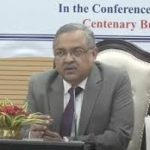The CLAT-UG 2025 examination has sparked significant discussions and controversies, leaving many aspirants and their families eagerly awaiting updates.
At the center of the current developments is Aditya Singh, a determined student who flagged errors in the examination paper.
1. The Petition and High Court Ruling
Aditya Singh filed a petition in the Delhi High Court challenging discrepancies in five questions of the CLAT-UG 2025 exam. After careful deliberation, Justice Jyoti Singh partly upheld the petition, acknowledging errors in two out of the five questions flagged. The court directed the NLU Consortium to rectify the results based on these findings.
However, the ruling left three contentious questions unresolved. Dissatisfied with the partial resolution, Aditya has announced his intention to escalate the matter to the Supreme Court, aiming for a comprehensive review.
2. Understanding the Errors
The errors identified in the examination paper primarily fall into two categories:
- Ambiguous Questions: Questions that lacked clarity, leading to multiple interpretations and confusion among candidates.
- Incorrect Answers in the Key: Cases where the official answer key provided by the Consortium was demonstrably incorrect.
Such issues are not only frustrating for students but also undermine the credibility of a national-level competitive exam like CLAT, which serves as the gateway to premier law schools in India.
3. Impact on Aspirants
The errors in the CLAT-UG 2025 exam have created uncertainty for thousands of candidates.
Here’s how the situation affects them:
- Ranking and Admissions: Even minor errors can significantly alter rankings, affecting candidates’ chances of securing seats in their preferred NLUs.
- Emotional Toll: The wait for corrections and the legal proceedings add to the stress of an already rigorous admissions process.
- Longer Admission Cycle: Delays in resolving the issue could extend the timeline for admissions, creating anxiety for students and institutions alike.
4. Legal Implications
The Delhi High Court’s decision highlights the judiciary’s role in ensuring fairness in competitive exams. By recognizing the errors in two questions, the court has reaffirmed the accountability of exam-conducting bodies like the NLU Consortium.
However, the unresolved questions and the petitioner’s decision to approach the Supreme Court indicate the need for a broader framework to address such disputes efficiently.
5. What’s Next?
The High Court has adjourned further hearings until January 30, giving the Consortium time to implement corrections for the acknowledged errors. Meanwhile, Aditya Singh’s decision to move to the Supreme Court adds another layer of complexity. If the apex court accepts the petition, it may:
- Club similar cases from across the country to provide a unified resolution.
- Order a thorough review of the entire examination process.
- Set guidelines to prevent such errors in future editions of CLAT.
6. How Aspirants Can Cope
While the legal proceedings unfold, aspirants must focus on maintaining their emotional and academic balance. Here are some tips:
- Stay Informed: Keep track of updates from reliable sources like the official NLU Consortium website and court proceedings.
- Engage in Productive Activities: Use this time to read books, learn new skills, or prepare for potential interviews and admissions processes.
- Seek Support: Connect with peers, mentors, and organizations like Vidhigya to navigate this challenging period.
7. A Broader Perspective: The Need for Reforms
This controversy underscores the importance of reforms in the examination and evaluation processes.
Key suggestions include:
- Stricter Quality Checks: Implementing a multi-tier review system to ensure error-free question papers and answer keys.
- Transparent Grievance Mechanism: Establishing an efficient system to address student concerns promptly.
- Accountability: Holding exam-conducting bodies accountable for errors that impact students’ futures.
Conclusion
The ongoing CLAT-UG 2025 controversy reflects the challenges of managing large-scale competitive exams. While Justice Jyoti Singh’s interim decision provides some relief, the unresolved issues highlight the need for continued vigilance and reform.
For now, students must stay positive and proactive as the legal process unfolds, trusting that the judiciary will uphold fairness and justice.
Organizations like Vidhigya remain committed to supporting aspirants through these turbulent times.



